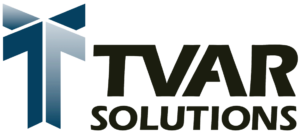There are many types of storage such as cloud storage, NAS, DAS, and backup appliances, the list goes on. Data storage helps to protect your agency’s important history and information from any major data loss. Protecting your users’ and agency’s vital files and document archive with storage solutions is a vital to a federal organization’s success.
What is Data Storage?
The act of digitally recorded files and documents saved in a storage system for future use. Storage systems may rely on electromagnetic, optical or other media to preserve and restore the data if needed. Utilizing data storage makes it easy to back up files for safekeeping and offers fast recovery in the event of a computing crash or possible cyberattack.
Data can be kept on disk drives, physical hard drives, USB drives or virtually in the cloud. Nonetheless, the most important thing is that your files are backed up and easily accessible in the case your systems crash beyond repair. A few important factors to consider in choosing a solution are reliability, the security features, and the cost to implement/maintain the infrastructure. TVAR can offer different data storage solutions and applications to help you arrive at the choice that best fit your agency’s needs.
Types of Data Storage
DAS (Direct Attached Storage)
DAS is physical storage connected to your computer. This is generally accessible to one machine. Some common devices are:
- Hard Drives
- Solid-State Drives (SSD)
- CD/DVD Drives
- Flash Drives
In comparison to NAS, DAS solutions are more affordable. This storage is great for creating local backups but sharing data between machines can be problematic.
NAS (Network Attached Storage)
Simply put, NAS allows multiple machines to share storage over a network. This is accomplished with multiple hard drives or other storage devices in a RAID configuration. One of the key benefits of utilizing NAS is the ability to centralize data and increase collaboration. Data can be easily shared among connected machines, and permission levels can be set to control access. While NAS solutions tend to be more expensive than DAS solutions, they are still affordable as storage technology continues to advance.
Types of Data Storage Devices
Hybrid Flash Arrays
Hybrid flash arrays are flash memory drives and hard disk drives for balanced performance. Offering a low-cost startup, reasonable performance costs and fast data access on demand. All-flash arrays offer lower latency and faster performance than hybrid flash but may cost even more.
Hybrid Flash Storage
Hybrid flash storage devices include both flash memory drives and hard disk drives for balanced performance. This storage option offers a low-cost startup, reasonable performance costs and fast data access on demand. While all-flash arrays offer lower latency and faster performance than it’s hybrid flash competitor it may cost more.
Backup Appliances
Backup servers, and backup and recovery appliances are often costly investments. Accumulate backup software and hardware components within a single device. Backup appliances offer a turnkey and all-inclusive backup solution that provides a central interface for backup processes, tools and infrastructure. Configurations may be complicated and reliability may be at risk with misconfigurations during install or incorrect software tuning.
Backup Software
Set it and forget it with convenience. This software for system and enterprise backups typically comes with a license or a subscription rate billed monthly or annually.
Cloud Storage
Cloud-based solutions offer virtual data storage and easy access to your materials from anywhere, not just a local computer or external hard disk. This type of storage is very reliable, but federal organizations need to configure their cloud storage security strategy before implementation.
SSD Flash Drive Arrays
Utilizing only flash memory, these solid-state storage systems offer quick data transfer between SSD and a smaller physical size than a typical disk array. The cost of this storage is paid upfront, but there’s great potential to pay a lower cost over time and help to pay for itself.
